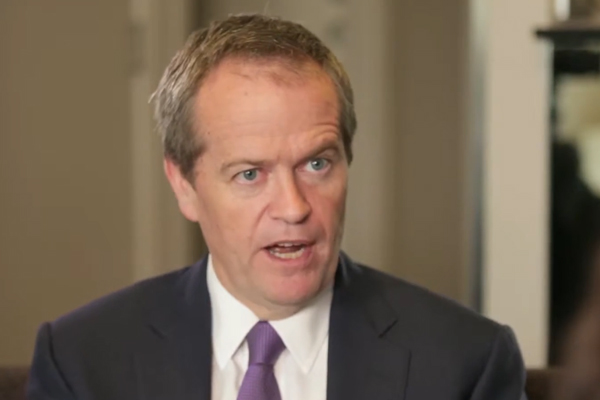While academics debate the diminishing popularity of both Labor and the Coalition, the truth is people just don't like to be treated like idiots, writes Peter Wicks.
AS SURE as the sun rises, every morning the inbox of someone working for a parliamentarian will have in it an email with the talking points for the day.
There has been a lot of soul-searching from the major parties and a lot of media speculation about the popularity of independents and minor parties. Labor and the Coalition are seeing their popularity bleed away. For all the Greens efforts the Labor vote is not shifting to them, they are treading water at a fraction over ten per cent of the primary vote.
Labor is languishing in the low 30s and the Liberals in the high 20s — pulled up by National Party and Queensland LNP votes. Meanwhile, minor parties and independents secured 11.45% of the primary vote last election.
Speculation on the reasons for this – and, in particular, the re-emergence of One Nation – has included things like shifting demographics, coal mining, racist elements and the suggestion of an apparent betrayal of the working class.
Our MPs are spoon-fed lines, which we see them regurgitate nightly on our TV screens, hear them repeat on our radios and read verbatim in our papers.
While some of these may have elements of truth to them – and I’m sure the academics and pseudo-experts will continue to debate them – I’m of the view that a major part of this trend is far more easily explained.
People don’t like to be treated like idiots.
Those inbox delivered lines each morning are so MPs don’t go “off-script” if they are asked about anything by the media. God forbid they have a view contrary to their leader. There are a million ways of saying “disunity is death” or any line that props up a leader and keeps the wolves at bay.
Our MPs are spoon-fed lines, which we see them regurgitate nightly on our TV screens, hear them repeat on our radios and read verbatim in our papers. On social media, there will often be a wave of posts hitting our feeds in unison from politicians all saying the same thing and often even using the same party-issued graphic.
Don’t think this is just the two major parties, either. The only party that is currently “doing politics differently” is One Nation and they are being rewarded for it with constant media attention.
People aren't stupid; they are aware that not every puppet has strings. When all they see from our politicians are a bunch of personality devoid robots spewing talking points on cue, they soon switch off.
After all, how is a member of the public to trust them? Clearly, their own party and leadership don’t trust them to do their jobs and have to force-feed their opinions and lines.
It’s not the MPs that are the problem. You can’t blame them for falling into line. It’s their career and they may have ambitions to be promoted off the shop floor to the management level. Going off message won’t help in that regard. It’s also understandable that MPs can’t be expected to be fully across every issue in every portfolio and, therefore, it is good to have a reference point on party positions.
However, it is expected that MPs will fall into line on everything — whether they have a personal view on a particular issue or not. This is doing them, their parties and the public a huge disservice.
The utter lunacy of this expectation was laid bare for the world to see when Bill Shorten gave his"I haven’t seen what she said, but let me say, I support what it is that she said” interview with David Speers, about Julia Gillard when she was Prime Minister.
No leader wants to have their press conference ruined by questions about a backbencher gone "rogue" or singing from a different songsheet. Politicians have become so scared of the “gotcha” style journalism that they have turned into robots. This, ironically, forces journalists to go for those “gotcha” moments because nothing is more boring than a talking head reciting a media release.
Not all politicians have a string on their back that gets pulled when lines are needed. Party leaders are able to show their personality, as are some of the more prominent government ministers and shadow ministers. However, personality is not the exclusive domain of leaders and senior ministers.
Some of the most prominent political voices come from independents and minor parties. Journalists looking for a real opinion from someone displaying a personality will seek out people like Pauline Hanson, Jacqui Lambie or Malcolm Roberts because whether you agree with them or not, you will probably listen to what they say. The public wants to watch talking points on repeat like they want to watch the 37th rerun of M.A.S.H.
From the major parties, journalists will seek out the car crash moments from rogue backbenchers like Craig Kelly and other MPs happy to throw the proverbial dead cat on the table and say something controversial, whether it fits their party platform or not.
The public wants to know the person behind the façade. The public wants to know that their politicians will call it as they see it. Whether they are in agreement or not, they will respect honesty. It’s one of the reasons the U.S. is dealing with a Trump Presidency. It’s why we pay so much attention to the likes of Pauline Hanson. It’s why with only 19 primary votes, Fraser Anning was able to dominate our news while he was in our Senate and see his party reach over 77,000 primary votes in the last election.
These days in Australia, we only catch a glimpse of personality from a major party MP when it surfaces on Q&A out of anger or frustration, or when someone completely screws up their lines and tries to dig themselves out of a hole at a press conference.
To reverse the downward trend, our political leaders may want to start cutting their caucus members some slack and allow them to speak freely. They won their seats in a vote, not in a raffle. Offer them some advice, sure, but don’t demand pre-determined positions.
You gain respect by showing respect. The public respected them enough to elect them. Respect the public's decision and let them have a voice of their own.
Peter Wicks is a former Federal Labor Party staffer.
 This work is licensed under a Creative Commons Attribution-NonCommercial-NoDerivs 3.0 Australia License
This work is licensed under a Creative Commons Attribution-NonCommercial-NoDerivs 3.0 Australia License
Support independent journalism Subscribe to IA.












